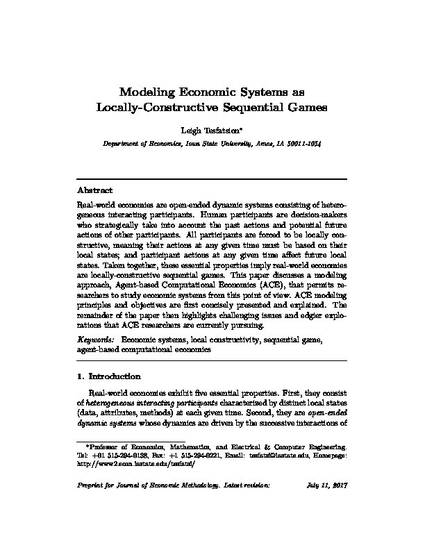
Real-world economies are open-ended dynamic systems consisting of heterogeneous interacting participants. Human participants are decision-makers who strategically take into account the past actions and potential future actions of other participants. All participants are forced to be locally constructive, meaning their actions at any given time must be based on their local states; and participant actions at any given time affect future local states. Taken together, these properties imply real-world economies are locally-constructive sequential games. This study discusses a modeling approach, agent-based computational economics (ACE), that permits researchers to study economic systems from this point of view. ACE modeling principles and objectives are first concisely presented. The remainder of the study then highlights challenging issues and edgier explorations that ACE researchers are currently pursuing.
Available at: http://works.bepress.com/leigh-tesfatsion/105/

This is a working paper of an article published as Tesfatsion, Leigh. "Modeling economic systems as locally-constructive sequential games." Journal of Economic Methodology 24, no. 4 (2017): 384-409. doi: 10.1080/1350178X.2017.1382068.